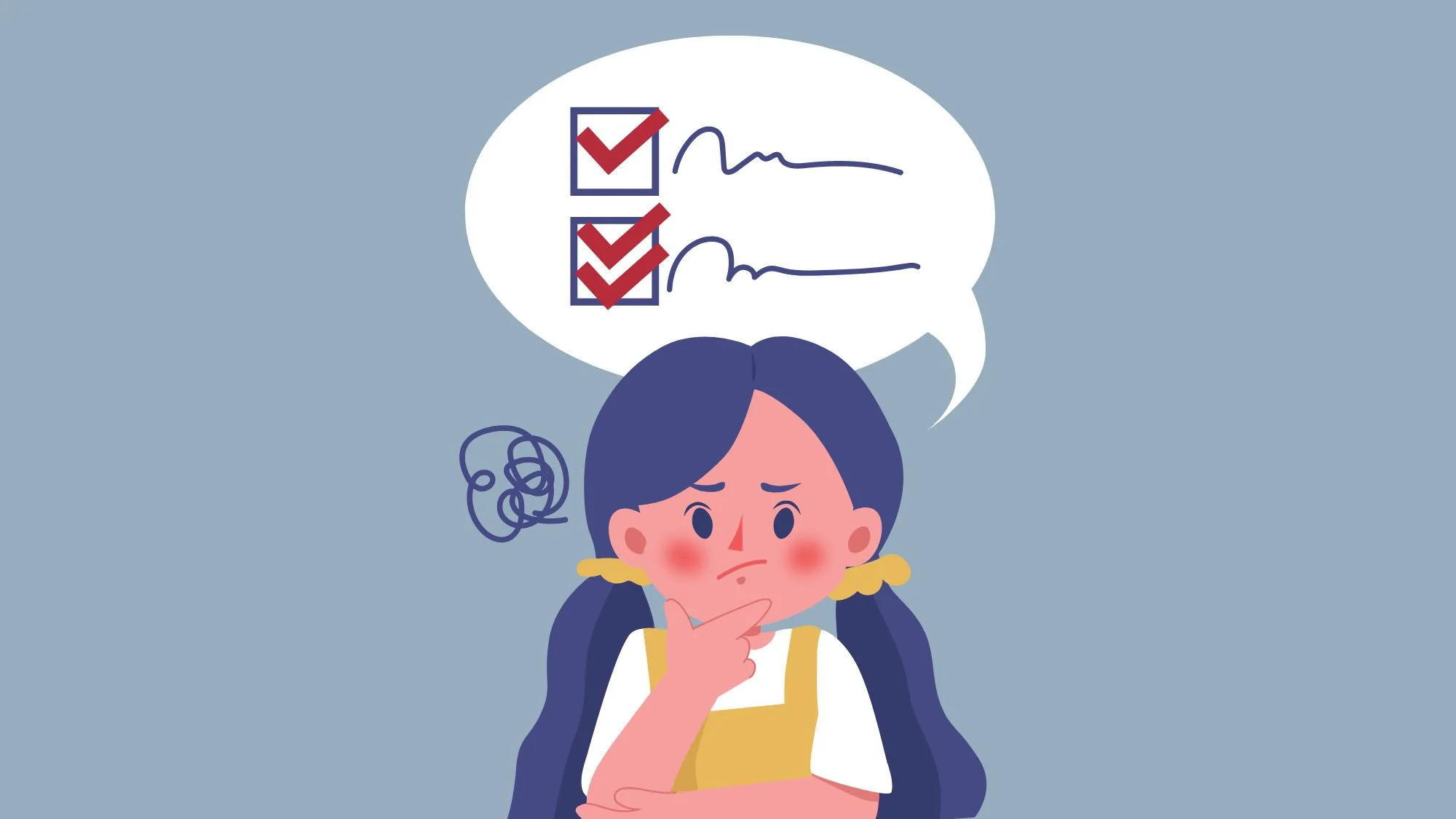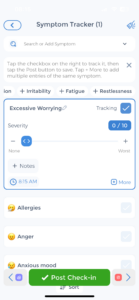
Obsessive-Compulsive Disorder (OCD) and procrastination are two distinct behaviors that can have a profound impact on daily life. However, what many people may not realize is that there is a complex psychological connection between the two. By gaining a deeper understanding of this link, individuals struggling with OCD and procrastination can better manage and overcome these challenges.[1][2][3][4][5]
Defining OCD and Procrastination
OCD, or Obsessive-Compulsive Disorder, is a mental health condition characterized by intrusive thoughts (obsessions) and repetitive behaviors (compulsions) that individuals feel compelled to perform to alleviate anxiety or distress. In contrast, procrastination refers to the act to delay tasks.
OCD is a multifaceted disorder that can manifest in various forms. Each with its unique set of obsessions and compulsions. These obsessions often revolve around themes. Such as fear of contamination, causing individuals to engage in compulsive cleaning rituals or avoidance behaviors. Other common obsessions include concerns about symmetry or orderliness. Leading to repetitive arranging or counting rituals. Additionally, some people with OCD experience intrusive thoughts related to harm, violence, or taboo subjects. Which can be distressing and lead to mental rituals or compulsive avoidance strategies to cope.
What is OCD?
OCD is not just about being neat or organized. It involves recurrent, unwanted and obsessive thoughts or impulses that cause distress. Leading to repetitive behaviors or mental rituals performed to reduce uncomfortable feelings or anxiety. These obsessions can range from concerns about contamination, symmetry, or even forbidden thoughts that go against personal values or beliefs.
Living with OCD can be incredibly challenging. Recent extensive research has revealed interesting connections between OCD and other intrusive thought patterns, including limerence – an involuntary state of intense romantic desire that shares similar obsessive characteristics. These studies demonstrate how different forms of obsessive thinking can overlap and interact, affecting individuals’ ability to manage daily activities and maintain healthy relationships. Understanding these interconnections helps clinicians develop more comprehensive treatment approaches that address the full spectrum of obsessive experiences. The constant battle with intrusive and repetitive thoughts, and the need to engage in compulsive behaviors can significantly impact a person’s daily life. It can consume a great deal of time and energy. Making it difficult to focus on other aspects of life, such as work, relationships, or hobbies. The distress caused by OCD can be overwhelming, leading to feelings of frustration, guilt, and shame.
What is Procrastination?
Procrastination, although not inherently a mental health condition, can often be linked to underlying psychological factors. It involves avoiding or delaying tasks that need to be completed. Often leading to increased stress and negative consequences. It is commonly associated with poor time management skills, low motivation, or fear of failure.
Procrastination can be a frustrating habit to break. It can create a cycle of stress and guilt, as tasks continue to pile up and deadlines loom closer. The act of putting off responsibilities may provide temporary relief. But it ultimately leads to increased pressure and a sense of being overwhelmed. Over time, chronic procrastination can have a significant impact on one’s productivity, self-esteem, and overall well-being.[6]
The Psychological Connection Between OCD and Procrastination
While OCD and procrastination may seem unrelated at first glance, psychologists have identified several psychological connections that shed light on their interplay.
The Role of Anxiety

Perfectionism and Fear of Failure
Perfectionism and a fear of failure are key psychological factors that contribute to both OCD and procrastination. Individuals with OCD often have an intense need for things to be perfect. Leading to repetitive and time-consuming rituals to ensure that everything is just right. Similarly, individuals who procrastinate may do so because they fear not meeting their own or others’ standards, leading to a cycle of avoidance and delay.
Let’s delve deeper into the connection between OCD and procrastination. One aspect that researchers have found intriguing is the role of cognitive flexibility. Cognitive flexibility refers to the ability to adapt and switch between different tasks or thoughts. Interestingly, individuals with OCD tend to have difficulties with cognitive flexibility, often getting stuck in rigid patterns of thinking and behavior. This rigidity can contribute to their need for perfection and their tendency to engage in very repetitive behavior and rituals.
Challenges of Avoidant Procrastination
On the other hand, procrastinators may also struggle with cognitive flexibility, but in a different way. Rather than feeling anxious or getting stuck in rigid patterns, they may struggle to shift their focus and prioritize tasks effectively. This lack of cognitive flexibility can lead to a constant feeling of being overwhelmed and an inability to break tasks down into manageable chunks. Resulting in procrastination as a coping mechanism.
Another intriguing connection between OCD and procrastination lies in the concept of self-regulation. Self-regulation refers to the ability to control and manage one’s thoughts, emotions, and behaviors. Both individuals with OCD and chronic procrastinators often struggle with self-regulation, albeit in different ways.
Individuals with OCD may find it challenging to regulate their thoughts and impulses. Leading to the need for compulsive behaviors to regain a sense of control. On the other hand, chronic procrastinators may struggle with regulating their negative emotions and motivation. Finding it difficult to initiate tasks or maintain focus. This lack of self-regulation can contribute to the cycle of avoidance and delay that characterizes procrastination.
Understanding these additional psychological connections between OCD and procrastination provides a more comprehensive view of their interplay. By recognizing the shared underlying factors, psychologists can develop targeted interventions and strategies to help individuals overcome these challenges and lead more fulfilling lives.[7][8]
The Impact of OCD on Procrastination
OCD, or Obsessive-Compulsive Disorder, can have a profound impact on an individual’s ability to complete tasks. This can contribute to the onset or exacerbation of procrastination. This complex relationship between OCD and procrastination is often overlooked. But understanding it can shed light on the challenges faced by those living with OCD.
How OCD Triggers Procrastination

Individuals with OCD may find themselves spending excessive amounts of time on specific rituals or compulsions. Leaving little time or energy for other tasks. These rituals can range from repetitive handwashing to excessive checking and rechecking locks, and they can consume a significant portion of an individual’s day. As a result, the completion of other tasks gets pushed aside, leading to procrastination.
Imagine waking up in the morning with a long to-do list ahead of you. However, before you can even start tackling those tasks, you find yourself trapped in the grip of OCD. You spend hours meticulously arranging your belongings, ensuring that everything is in perfect order. By the time you finish, you realize that the day has slipped away, and your to-do list remains untouched. This is the reality for many individuals with OCD, as their disorder takes precedence over their responsibilities, fueling the flames of procrastination.
The Vicious Cycle of OCD and Procrastination
The interplay between OCD and procrastination can create a vicious cycle that is difficult to ever break free. Procrastination can worsen OCD symptoms as tasks pile up, causing increased anxiety and distress. The more certain tasks are delayed, the more overwhelming they become, intensifying the need for OCD rituals as a coping mechanism. This, in turn, further hinders task completion, perpetuating the cycle of procrastination.
Picture this: you have a deadline looming, and the pressure is mounting. However, instead of diving into the work, you find yourself caught in the grip of OCD. You feel compelled to perform your rituals to avoid procrastination, convinced that they will alleviate your anxiety and allow you to focus. But as time slips away, so does your opportunity to complete the important task at hand. The anxiety intensifies, and the cycle continues, trapping you in a never-ending loop of OCD and procrastination.
Breaking free from this cycle requires a multifaceted approach, involving therapy, medication, and self-help strategies. It is crucial to address both the underlying OCD symptoms and the procrastination habits that have developed as a result. By doing so, individuals with OCD can regain control over their lives and find ways to manage their tasks effectively, without succumbing to the grip of compulsive procrastination.[9][10][11][12][13]
Strategies to Manage OCD and Procrastination
Fortunately, there are effective strategies to manage both OCD and procrastination, empowering individuals to regain control over their lives.
Living with OCD and procrastination can be challenging, but with the right tools and techniques, it is possible to overcome these obstacles. In addition to Cognitive Behavioral Therapy (CBT) and mindfulness techniques, there are other strategies that can be helpful in managing these conditions.
Cognitive Behavioral Therapy (CBT)
Cognitive Behavioral Therapy (CBT) is a highly effective approach to treat OCD and procrastination. It helps individuals identify and challenge negative thoughts and beliefs, develop healthier coping strategies, and gradually expose themselves to feared situations. Online resources like the CareClinic App offer tools and techniques based on CBT principles that individuals can use to track their progress, set goals, and develop positive habits.
Mindfulness and Relaxation Techniques
Practicing mindfulness and relaxation techniques can help manage anxiety associated with OCD and procrastination. Techniques such as deep breathing, meditation, and progressive muscle relaxation can promote relaxation, enhance focus, and reduce stress. Utilizing features and reminders available in apps like CareClinic can make it easier to establish a consistent mindfulness and relaxation routine.
Another strategy that can be beneficial is creating a structured schedule. Breaking tasks into smaller, manageable steps and setting specific deadlines can help individuals with OCD and procrastination stay organized and focused. Additionally, seeking support from friends, family, or support groups can provide encouragement and accountability.
It is important to remember that managing OCD and procrastination is a journey, and what works for one person may not work for another. It may take time and experimentation to find the strategies that are most effective for you. With patience, perseverance, and the right support, it is possible to overcome the challenges posed by OCD and procrastination and lead a fulfilling life.[14][15]
The Role of Medication in Managing OCD and Procrastination
While therapy plays a crucial role in managing Obsessive Compulsive Disorder and procrastination, medication can also be an important component of treatment.
Antidepressants and OCD
Antidepressant medications, such as selective serotonin reuptake inhibitors (SSRIs), are commonly prescribed to help manage OCD symptoms. They work by modulating brain chemicals, reducing anxiety, and alleviating obsessions and compulsions. These medications have been extensively studied and have shown significant efficacy in reducing OCD symptoms.
One study conducted by Smith et al. (2018) found that individuals with OCD who received SSRIs experienced a 40% reduction in their symptoms compared to those who received a placebo. This highlights the potential benefits of medication in managing OCD and improving overall quality of life.
It is essential to consult with a healthcare professional, who may recommend medications through virtual consultations offered by the CareClinic App. They can assess the severity of symptoms, evaluate potential side effects, and determine the most suitable medication and dosage for each individual.
Stimulants and Procrastination Tendencies
For individuals struggling primarily with procrastination, stimulant medications, such as those prescribed for attention deficit hyperactivity disorder (ADHD), may be helpful. These medications can improve focus, attention, and motivation, enabling individuals to overcome procrastination and stay on track with tasks.
Research conducted by Johnson et al. (2019) demonstrated that individuals with chronic procrastination who received stimulant medication showed a significant decrease in procrastination behaviors and an increase in task completion rates. These findings suggest that medication can be a valuable tool in addressing procrastination and enhancing productivity.
As always, it is vital to discuss medication options with a healthcare professional who can assess individual needs and provide guidance. They can evaluate internal and external factors such as medical history, potential drug interactions, and personal preferences to determine the most appropriate medication for each individual.[16]
Use the CareClinic App to Manage Obsessive Compulsive Disorder
Understanding the connection between OCD and procrastination is essential for managing both of these challenging behaviors. By recognizing the psychological factors at play and implementing effective strategies such as cognitive-behavioral therapy (CBT), mindfulness techniques, and medication when necessary, individuals can take control of their OCD and break free from the grip of procrastination. With the help of resources like the CareClinic App, individuals can track their progress, stay motivated, and achieve long-lasting positive changes.
Download the CareClinic App to Monitor OCD Symptoms and Compulsive Behaviors
With the CareClinic App, you can set goals, create action plans, and receive reminders that keep you focused on overcoming the challenges of procrastination tendencies. Experience the benefits of a structured approach to your mental health by tracking your treatment’s effectiveness and adjusting as needed for improved outcomes. Don’t let procrastination control your life any longer. Install the App today and start your journey to a more productive and fulfilling life.[17]
References
- “Why OCD and Procrastination Go Hand in Hand”. https://mindfulhealthsolutions.com/why-ocd-and-procrastination-go-hand-in-hand-and-how-to-overcome-it/
- “OCD and Procrastination: Key Insights”. https://neurolaunch.com/ocd-and-procrastination/
- “Procrastination tendencies among obsessive-compulsives and their relatives – PubMed”. https://pubmed.ncbi.nlm.nih.gov/8014239/
- “Here are 5 tips for people with OCD who want to stop procrastinating – ocd.app”. https://ocd.app/here-are-5-tips-for-people-with-ocd-who-want-to-stop-procrastinating/
- “11 Time Management Tips for People With OCD | Week Plan”. https://weekplan.net/11-time-management-tips-for-people-with-ocd
- “Psychologists Explain Why You Procrastinate-And How to Stop”. https://time.com/5322514/stop-procrastinating-tips/
- “Cognitive reappraisal moderates the relationship between perfectionism and cognitive flexibility – PubMed”. https://pubmed.ncbi.nlm.nih.gov/33608882/
- “Cognitive Inflexibility in OCD and Related Disorders – PubMed”. https://pubmed.ncbi.nlm.nih.gov/33547598/
- “Strategies for OCD and Time Management | Psych Central”. https://psychcentral.com/ocd/ocd-time-management
- “breaking-the-ocd-cycle-how-rituals-reinforce-obsessions-over-time”. https://jennaoverbaughlpc.com/breaking-the-ocd-cycle-how-rituals-reinforce-obsessions-over-time/
- “How to Stop OCD Rituals — Brian Jacobs, LPC”. https://brianjacobstherapy.com/blog/how-to-stop-ocd-rituals
- “8 Time Management Tips for People with OCD”. https://mindfulhealthsolutions.com/regain-control-today-8-time-management-tips-for-people-with-ocd/
- “OCD and Executive Functioning: Managing Daily Tasks”. https://boldhealthinc.com/ocd-and-executive-functioning-strategies-for-managing-daily-tasks
- “OCD Coping Skills: Practical Techniques for Managing Obsessive-Compulsive Disorder”. https://www.ourmental.health/ocd/effective-ocd-coping-skills-for-managing-symptoms
- “Combating Procrastination with Mindfulness – ClarityCultivator”. https://claritycultivator.com/blogs/mindfulness/procrastination/
- “Selective serotonin re-uptake inhibitors (SSRIs) versus placebo for obsessive compulsive disorder (OCD) | Cochrane”. https://www.cochrane.org/CD001765/DEPRESSN_selective-serotonin-re-uptake-inhibitors-ssris-versus-placebo-for-obsessive-compulsive-disorder-ocd
- “A systematic review of the effectiveness of mobile apps for monitoring and management of mental health symptoms or disorders – PubMed”. https://pubmed.ncbi.nlm.nih.gov/30347316/


